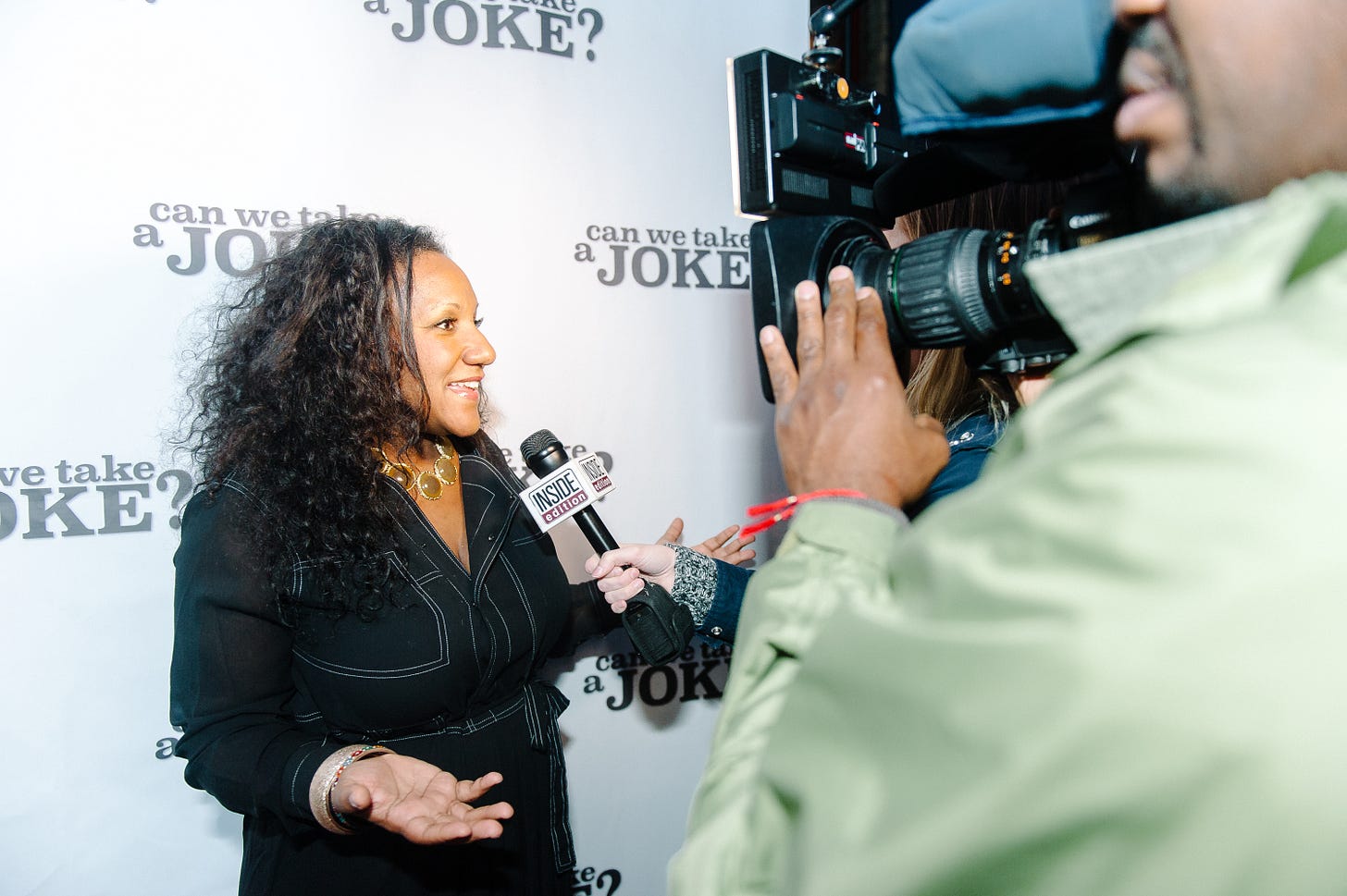Karith Foster at the “Can We Take a Joke?” premiere party at the world famous Comedy Cellar in New York in 2015.
Karith Foster is a DEI (Diversity, Equity, and Inclusion) trainer, but she’s not that kind of DEI trainer.
Imagine speaking freely at a diversity workshop. Imagine laughing. Imagine leaving the workshop feeling more connected to your colleague…
Keep reading with a 7-day free trial
Subscribe to Shiny Herd to keep reading this post and get 7 days of free access to the full post archives.





